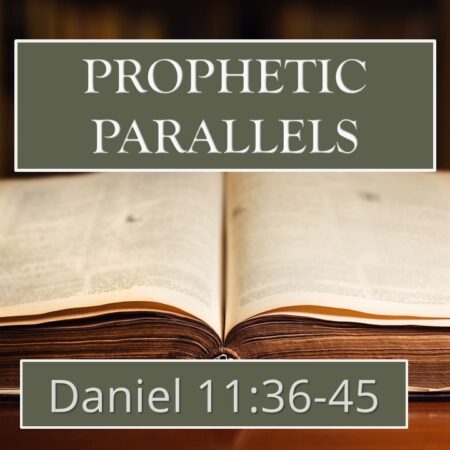Daniel 11:36-45
Genesis 41:1-46
Genesis 41:56
Genesis 47:17
Daniel 11:36-39
Genesis 47:25
1 Thessalonians 5:1-5
1 Thessalonians 5:11
John Lennox “Against the Flow”
“At first (reading Daniel 11:36-39) it looks as if Daniel is still talking about Antiochus IV Epiphanes. He was certainly a willful and proud king, as were many before him. Antiochus exalted himself and was the first of the Seleucid dynasty to assume divine honors for himself. Even his coinage bore the inscription “God manifest”. His most violent aggression was directed against the God’s of gods, the God of Israel. He was anti-God. He reminds us of a new breed of atheist, the so-called “New Atheists”, who are not content simply to disbelieve in the existence of God themselves but actively campaign against God and all manifestations of belief in him on the part of others.
However, Antiochus IV did not go as far as to exalt himself above every god. For instance, he sought to get the Jews to worship the familiar gods of the Greek pantheon, rather than force them to worship him.”
Later he asks the question:
“The history is impressively accurate. Where does this leave us? It leaves us with the fact that the events of Daniel 11:40-45 cannot be identified in ancient history because THEY HAVE NOT HAPPENED YET.”
“Daniel uses the life and times of Antiochus IV as a thought model of the end time, when an altogether more sinister leader will appear, who will exalt himself as God.”
Wilfred Hahn published the Book
“Global Financial Apocalypse Prophesied”
“God had enabled Joseph to interpret Pharaoh’s dream as well as recommend a public-works program. He was then put in charge of the entire kingdom.
I then becomes a heart-rending story that reveals what humanity will do in order to quell the pangs of hunger, to be saved from a crisis – whatever its kind. In desperate times, having little choice, people will strike bad deals, ceding freedoms and increasing their vulnerability to rich despots and totalitarian regimes.
Fourteen years later, the entire commercial and societal structure of the known world at that time, as well as almost all the land in Egypt, came under the control of one man – Pharaoh – due to Joseph’s management. The Pharaoh ended up becoming an all-powerful economic potentate.
How did this happen? A more detailed examination of this account reveals many levels of prophetic foreshadowing; these provide end-time warnings for the world and for Christians living today.”
Sounds like Klaus Schwab (Davos Agenda)
“You will own nothing, and you will be happy.” (The Great Reset)
“The pandemic represents a rare but narrow window of opportunity to reflect, reimagine, and reset our world.”
Wilfred Hahn asks the question:
“If Joseph’s action indeed saved millions of lives, then does anything else matter? Wasn’t the tradeoff worth it – putting entire populations into vassalage and widening even farther the imbalances of the wealth distribution?
That may appear to be the same type of situation faced by those who are currently making policy decisions about the public responses to the COVID-19 pandemic.
Should we save everyone from dying from the virus, but completely destroy the global economy and place massive debts upon the shoulders of citizens? How can it be ensured that the stimulus of massive new indebtedness will be distributed fairly?
Is everyone being forced into economic bondage?
Pharaoh came to this position of controlling the entire world by dispensing the means of providing bread and prosperity. The incentive of gaining “bread” was harnessed by one centralized system – even by one man. We may see that aspect of that process are again sweeping the entire world today under the guise of the promise of “more bread for the entire world.”

